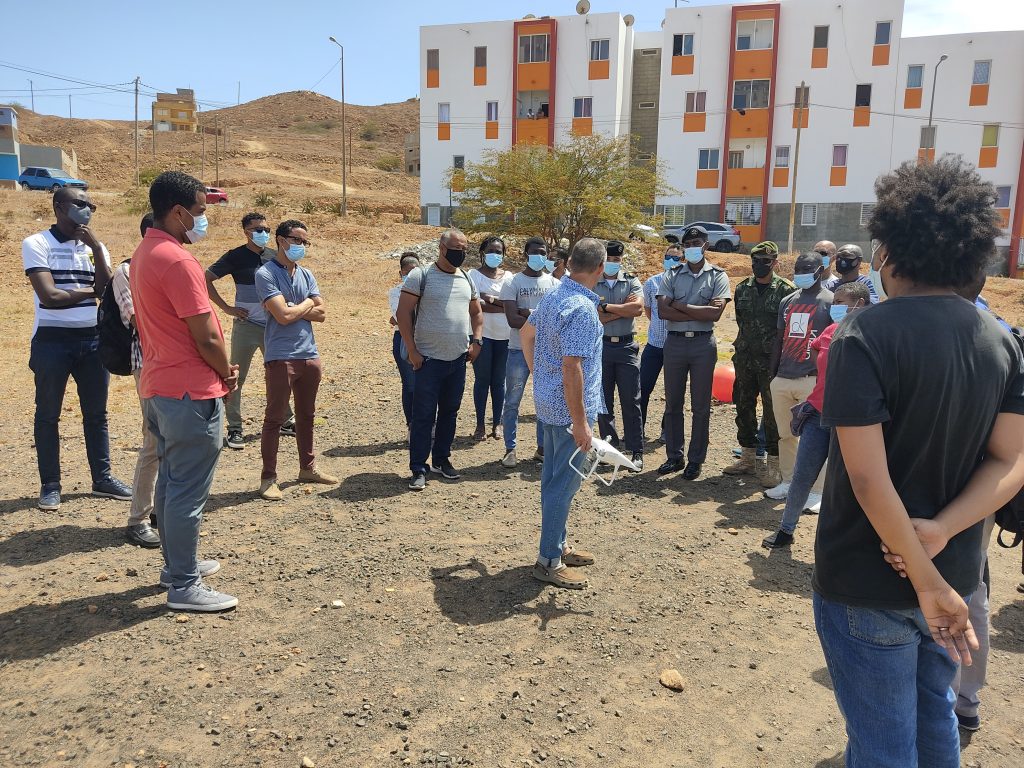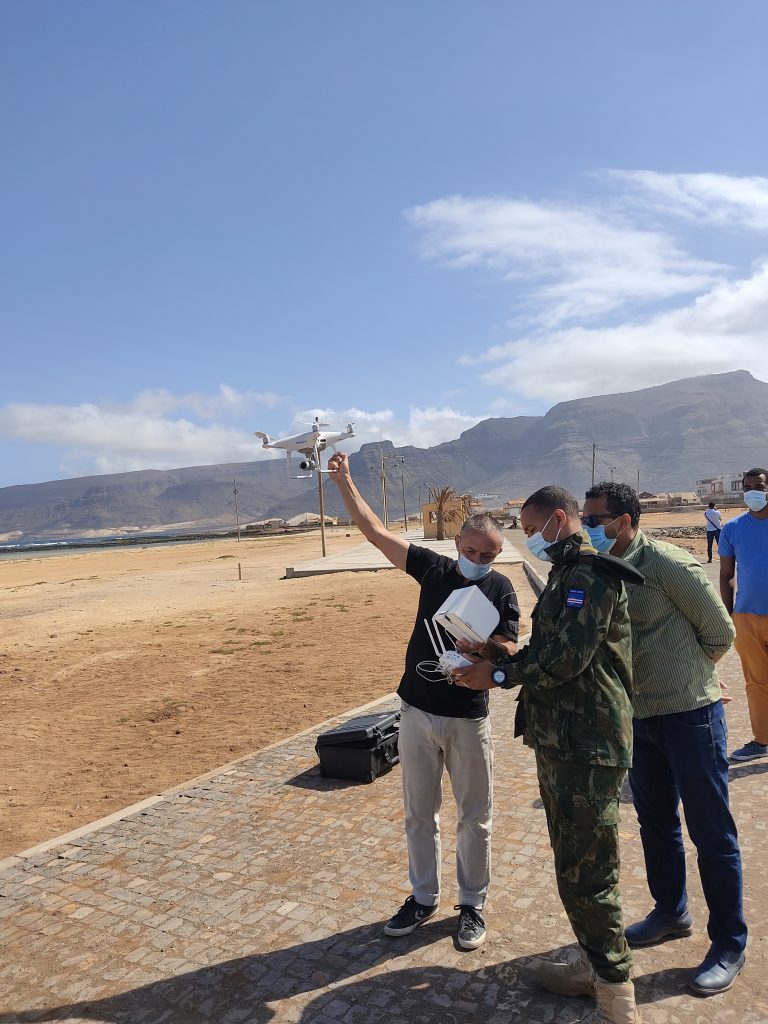
As part of its master’s programme in Climate Change and Marine Sciences, WASCAL Cabo Verde in partnership with the Coastal Ecosystem Monitoring of Cabo Verde (CEM-CV) has held workshop under the theme, “Drones, a new working tool for biologists and conservationists”.
The four-day training was divided into theoretical and practical classes, designed for students of the master’s degree, professors and technicians of ISECMAR-UTA, as well as technicians from the Guarda Costeira-JRCC, Instituto do MAR- IMAR, Instituto Marítimo Portuário-IMP and UNI-Mindelo. The training received technical and scientific support from the University of Algarve from Portugal,), with the engagement of
Doctor Nuno Loureiro, who taught the practical and theoretical classes.
The objective of the course was to train participants so that they can make the best possible use of this important work tool in scientific research and in various studies of mapping, environmental diagnosis and spatial planning, among others.
various theoretical components, of topics such as the types and applications of drones, safety and legislation were lectured. The hands-on classes taught participants how to fly, schedule and perform aerial survey missions, obtain, process, analyze and interpret the data collected with the drones.
The Master’s Research Programme on Climate Change & Marine Sciences of the University of Cabo Verde is implemented in close cooperation with the GEOMAR Helmholtz Centre for Ocean Research Kiel, the University of Kiel and the Thünen Institute, as German partner institutions and with the National Institute for Fishery Development (INDP) as the Cabo Verdean partner institution. This consortium is well suited to provide needed scientific and academic skills in climate, marine sciences and management both on an international and on a regional level in West Africa, in a climate change context.


